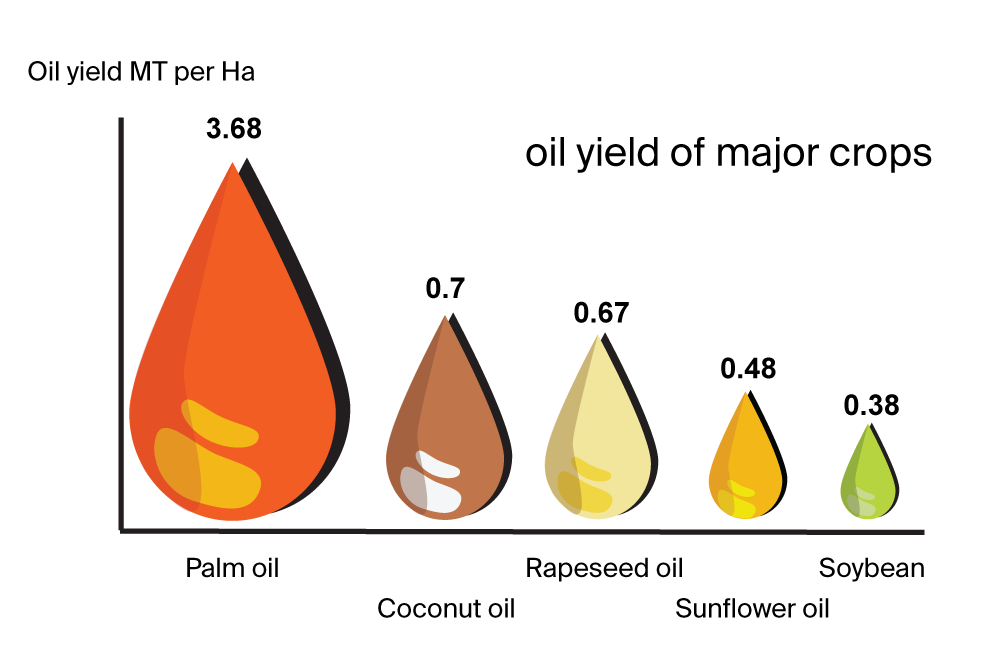What Is Sustainable Palm Oil
You might have heard a lot about palm oil. Good, bad, complicated. Palm oil is a versatile product that can be used in many applications. It's in your cookies, your soap, and even in candles. Moreover, palm oil has a balanced fatty acid composition.
You may already know that palm oil is efficient. It yields more oil per hectare than any other vegetable oil crop. But efficiency alone isn't enough. Sustainability is the real challenge and opportunity.
The practice of sustainable palm oil includes:
- No deforestation commitments
- Efficient land use
- Protection of peatlands
- Integrated pest management
- Biodiversity conservation

Is Palm Oil Sustainable?

Palm oil can be sustainable because, compared to other vegetable oils. First, palm oil has a higher yield of oil per hectare. Up to 10 times more efficient than soybean oil. So, you need less land.
Palm trees are called perennial crops. They live for about 25 years without needing annual replanting. For example, sunflowers and soybeans are annual crops and are replanted every year. These crops consume more resources and energy. Palm trees are stronger and more resilient, making them environmentally efficient. Learn about perennial crops: 👉 Read More...
As a palm oil company, we only produce certified sustainable palm oil. This means that we avoid deforestation, protect wildlife habitats, and support local communities. Certification schemes like RSPO ensure traceability and accountability throughout the supply chain.
So, palm oil itself isn't the problem. It's how it's produced that defines its sustainability.
How Sustainable Palm Oil Can Actually Work for You
Producers and end consumers are demanding transparency about where the ingredients are sourced and produced. They want assurances! By adopting sustainable palm oil, your company/product brand sends a clear message:
You Care, and You're Responsible
There's a lot of palm oil out there, sure. But genuinely sustainable palm oil production? Choosing sustainability gives your business a competitive edge. It's something you can talk about confidently.
Sustainable palm oil is not only about environmental responsibility. It's also about business continuity, risk reduction, and future-proofing your operations. Choosing sustainable palm oil from SD Guthrie International, you do business with a company that has already had an undisputed reputation for decades. Moreover, we are one of the founders of the RSPO. Additionally, our supply chain for sustainable palm oil complies with the European Union's Deforestation Regulation (EUDR). Being proactive today means less scrambling tomorrow.
Reach out to us. We can discuss your needs, concerns, and goals. 👉 Get in touch with our team.